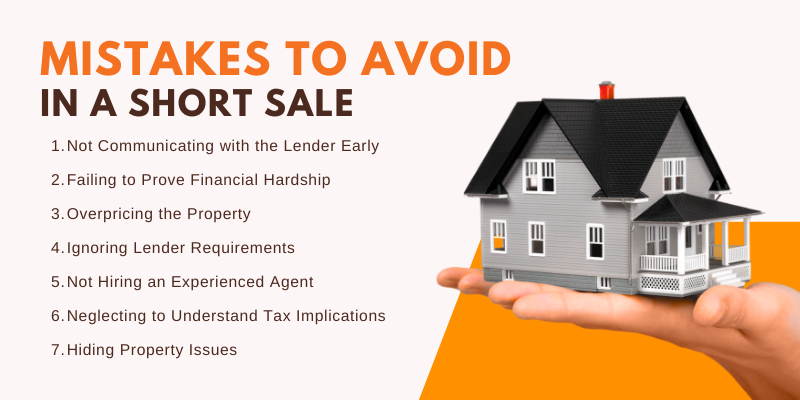When you can no longer keep up with your mortgage payments and owe more than your home’s current market value, your lender might allow you to go through a short sale.
So, exactly what is a short sale in real estate?
Simply put, when you sell your home for less than the amount you still owe on the mortgage. Because the lender is agreeing to accept a lower payoff than what’s due, their approval is required before the sale can proceed.
Despite its name, a “short sale” doesn’t refer to the speed of the process. Instead, it means the sale price falls short of the total mortgage balance owed.
While the process can be lengthy, it’s often a practical way for homeowners to avoid foreclosure, reduce damage to their credit, and regain financial stability during tough times.
For buyers, a short sale can present an opportunity to purchase a property at a lower price. However, it typically takes longer to complete than a traditional home purchase, so patience is key.
Let’s take a closer look at how short sales work for both sellers and buyers.
What is a Short Sale in Real Estate?
A short sale in real estate happens when a homeowner sells their property for less than the remaining balance on their mortgage.
This situation often arises when the homeowner is struggling financially and can no longer keep up with mortgage payments.

If the lender approves the short sale, it allows the homeowner to avoid foreclosure and the lasting damage it can cause to their credit. It also helps them sidestep the emotional and legal stress of an eviction.
From the lender’s perspective, a short sale can help recover part of the outstanding loan without going through the lengthy and costly foreclosure process.
After the sale, the lender receives the proceeds and can either forgive the remaining debt or seek a deficiency judgment to recover the balance.
Although not a perfect solution, a short sale is generally a better alternative for both the homeowner and the lender than a full foreclosure.
Short Sale vs. Foreclosure
A short sale and a foreclosure differ in how they begin and the level of control the homeowner retains.
A short sale is typically initiated by the homeowner as a proactive way to avoid foreclosure after falling behind on payments.
It’s a voluntary, negotiated process that involves cooperation with the lender to settle the debt as fairly as possible.
In contrast, foreclosure is a legal process initiated by the lender after the homeowner stops making payments.
The lender takes possession of the property and sells it to recover the loan amount.
This is where the B2B sales funnel often becomes a useful strategy for real estate agents and lenders who are working with distressed properties.
While foreclosure often leads to severe credit damage and loss of control, a short sale allows the homeowner to exit the situation more gracefully, preserving some creditworthiness and financial stability.
Explore Our B2B Marketing Services!
The Short Sale Process
A short sale in real estate is a complex process that involves multiple parties and requires careful coordination.

Here’s a breakdown of how it typically works:
1. Initiation of the Short Sale
The process begins when the homeowner, who is struggling with mortgage payments, contacts their lender to request a short sale. The homeowner needs to prove financial hardship, such as a loss of income, medical bills, or divorce, to justify the need for the sale.
The homeowner will also need to submit a detailed financial package, including income statements, tax returns, and the property’s current market value.
2. Lender's Involvement
Once the lender agrees to consider the short sale, they will evaluate the homeowner’s financial situation. The lender may also hire a third-party negotiator to handle the short sale process.
The lender must approve the sale price, as they will accept the proceeds as full repayment of the loan, even if it’s less than the outstanding balance.
3. Buyer's Role
Buyers enter the picture once the property is listed for sale. They can make offers on the property, but the offer is subject to approval by the lender.
In many cases, buyers are attracted to short sales because they can purchase properties at a lower price than the market value.
4. Timeline of a Typical Short Sale
The timeline for a short sale can vary, but it generally takes several months to complete. After receiving an offer, the lender typically takes 30 to 60 days to review and approve it. If there are multiple offers or complications, it may take even longer.
The sale will close once the lender approves the buyer’s offer, and the proceeds are used to pay down the mortgage.
Top 3 Advantages of a Short Sale for Homeowners, Buyers, and Lenders
A short sale in real estate benefits homeowners by avoiding foreclosure, provides buyers with discounted properties, and helps lenders minimize losses.
1. For Homeowner
A short sale in real estate offers several benefits for homeowners who are struggling with mortgage payments. The primary advantage is that it helps homeowners avoid the more severe consequences of foreclosure.
Foreclosure can severely damage a homeowner's credit score and can lead to the loss of the home and years of financial recovery.
By opting for a short sale, homeowners can sell the property, pay off a portion of the mortgage, and potentially reduce the amount of debt they owe.
This can allow them to move on with their financial lives with less long-term damage to their credit.
Additionally, in many cases, homeowners can negotiate with the lender for a "deficiency waiver," meaning they won’t be held responsible for the remaining mortgage balance.
A digital marketing strategy could help these homeowners connect with potential buyers faster.
2. For Buyers
For buyers, a short sale in real estate presents a unique opportunity to purchase a property at a price below its market value. Since the property is being sold for less than the remaining mortgage balance, buyers can often find homes at a discount compared to typical market prices.
This can be especially appealing to first-time homebuyers or real estate investors looking for opportunities to acquire properties at a lower cost.
Marketing tactics to make the listing more visible online can play a big role in reaching these buyers.
However, it’s important to note that short sales typically come with longer wait times for approval and additional complexities compared to traditional home sales.
3. For Lenders
Lenders also benefit from facilitating a short sale in real estate. While they may not recover the full amount owed on the mortgage, a short sale can minimize their losses compared to a foreclosure.
Foreclosures are costly and time-consuming for lenders, as they involve legal proceedings, property maintenance, and potentially lower resale values.
By agreeing to a short sale, lenders can quickly sell the property, recoup some of the loan balance, and avoid the added expenses and delays of foreclosure.
This makes the short sale a preferred alternative for lenders when dealing with distressed properties.
Lenders often work with agencies like Centric to implement digital transformation strategies that streamline the short sale process.
7 Mistakes to Avoid in a Short Sale
While a short sale in real estate can be a helpful solution for homeowners facing financial hardship, it’s important to handle the process carefully.

Missteps can lead to delays, rejection from the lender, or even financial loss. Here are some common mistakes homeowners should avoid when going through a short sale:
- Not Communicating with the Lender Early: Waiting too long to contact your lender can limit your options. It’s best to reach out as soon as you realize you’re struggling to make payments.
- Failing to Prove Financial Hardship: Lenders require documentation, such as income statements, tax returns, and a hardship letter, to approve a short sale. Missing or incomplete paperwork can delay or derail approval.
- Overpricing the Property: Listing the home above market value can discourage buyers and slow down the process. The property should be priced realistically to attract offers quickly.
- Ignoring Lender Requirements: Each lender has its own short sale procedures. Failing to follow specific steps or deadlines can result in rejection.
- Not Hiring an Experienced Agent: A short sale is more complex than a typical home sale. Working with a real estate agent experienced in short sales can help you navigate negotiations smoothly.
- Neglecting to Understand Tax Implications: Forgiven mortgage debt may be considered taxable income. Consulting a tax professional ensures you’re aware of potential tax liabilities.
- Hiding Property Issues: Concealing problems like damage or needed repairs can backfire later. Being transparent helps maintain trust and ensures the sale moves forward.
Avoiding these mistakes can make the short sale process smoother, faster, and less stressful, helping homeowners achieve a fresh financial start with fewer setbacks.
Tax Implications of a Short Sale
A short sale in real estate can have tax implications for the seller. If the lender forgives the remaining mortgage balance after the sale, it may be considered taxable income by the IRS.
This means the seller could owe taxes on the amount of debt that was forgiven, which is referred to as "cancellation of debt" income.
However, there are exceptions, such as if the seller qualifies for insolvency or if the property was their primary residence, in which case certain exemptions may apply.
In some cases, a real estate marketing agency may assist in guiding the seller through these financial considerations by connecting them with tax professionals who specialize in such matters.
What to Consider When Navigating Tax Liabilities?
When navigating tax liabilities from a short sale in real estate, the seller should consult a tax professional to understand their specific situation.
Sellers should consider factors like whether the forgiven debt qualifies for tax exemption under the Mortgage Forgiveness Debt Relief Act (if applicable) or if they meet the criteria for insolvency.
Additionally, understanding the tax treatment of the transaction and planning for potential tax liabilities is crucial to avoid unexpected financial burdens after the sale.
Conclusion
In conclusion, we have covered all the aspects of what is a short sale in real estate. A short sale in real estate provides numerous benefits, such as helping homeowners avoid foreclosure, offering buyers the chance to acquire properties at a lower price, and enabling lenders to reduce their losses. However, the process can be complex and time-consuming, with potential tax implications for the seller and no guarantee of full recovery for the lender.
Who should consider a short sale in real estate? Homeowners facing financial distress, such as job loss, medical emergencies, or divorce, and who wish to avoid the more severe consequences of foreclosure, should consider this option. It can also be a viable solution for those who want to reduce their debt and move on with their financial lives. However, it's important to weigh the pros and cons and seek professional advice before proceeding with a short sale.








